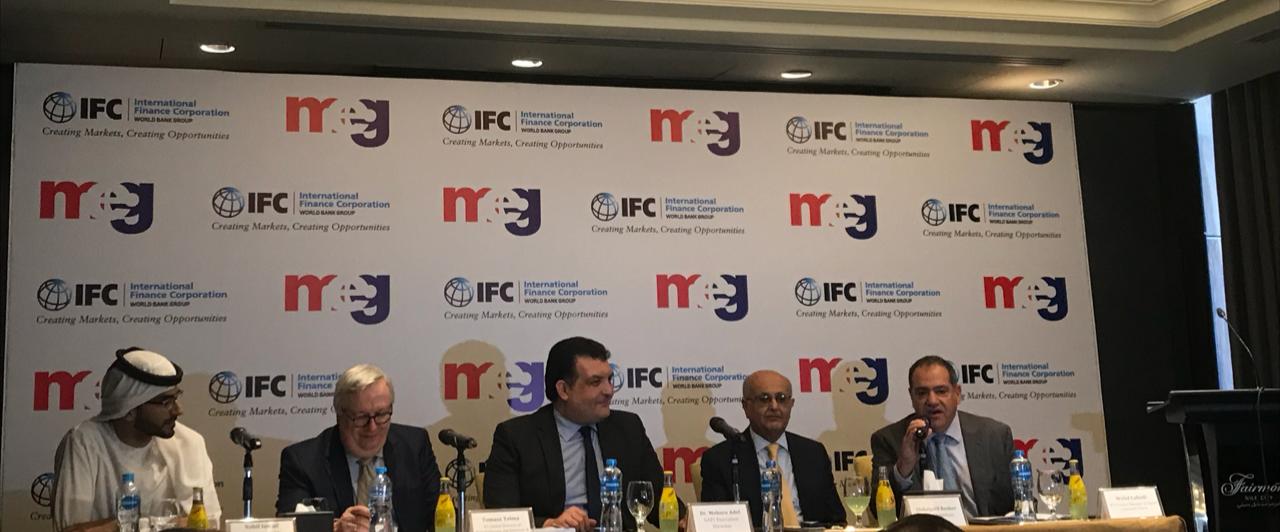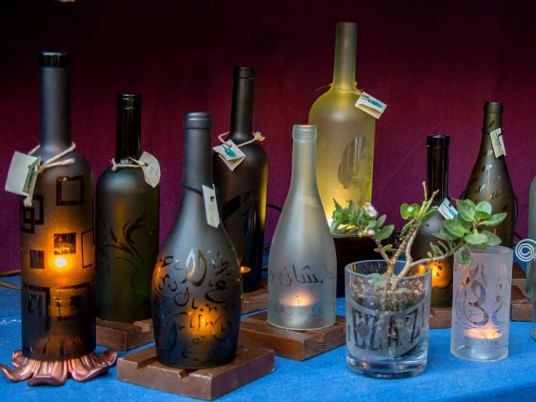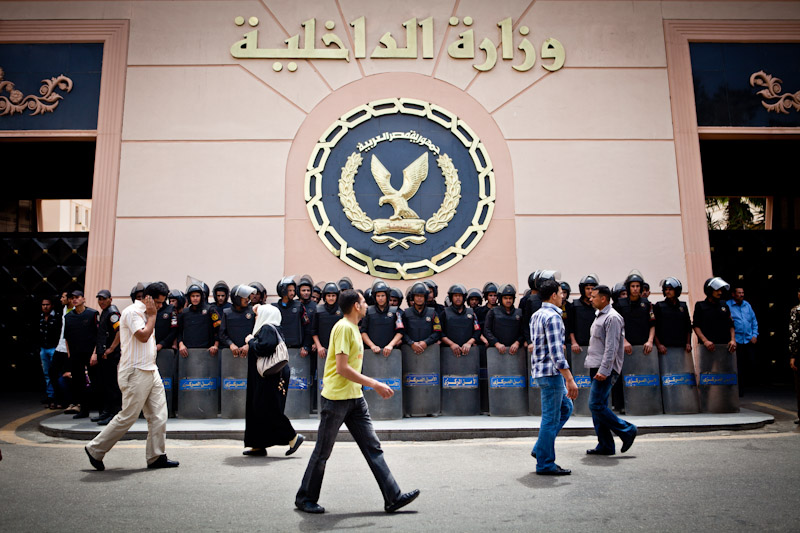Riding a white cab in the City of the Dead is a unique experience as its wide frame traverses the narrow dirt tracks lined with cemeteries and old dignified mosques. The pedestrians seem constantly startled by the presence of the car, dodging it at the very last moment by pressing themselves against the walls.
After a few minutes’ ride, the sparkling Chevrolet reaches its final destination, the discreetly tucked-away “Mamluke’s Factory,” Cairo’s last glassblowing factory.
Thanks to a traditional furnace, the factory produces and sells a vast array of delicately crafted candle holders, bowls, cups, vases and pitchers, among other household items.
Stepping into the long, narrow shop with a vaulted ceiling in decaying baby blue lime, one feels as if they’re stepping into a crypt. The pale flickering neon is augmented with a warmer yellow light that the owner promptly switches on as customers step in. As soon as the silhouette of a tourist appears, the light goes on; when he leaves, it is dark again. At the back of the shop, the glowing heat of the furnace wraps newcomers in a pleasant languor, but the bright orange gas flames quickly make the heat unbearable.
“My family has been blowing glass for the past three generations,” explains Hassan Ahmed Aly, the owner of the shop, stressing that “we are the last glass factory in Egypt, and our products can be found all over the markets in Cairo and in Upper Egypt.”
Not a drop of sweat forms on his aged forehead as he meticulously adds a piece of glowing charcoal to his ma’assel shisha . “Originally we used wood logs to fuel the heat of the furnace, but had to stop when more people settled in the area and complained about the thick dark smoke emanating from the furnace,” says Aly, “We have been using gas for a while now, and as you can see there are no traces of nasty fumes.”
Aly’s nephew, a young man with a thin moustache, sits on a bench a few meters away from the furnace, expertly manipulating a long blowpipe. Pieces of broken glass, purchased by the factory’s owner from nearby restaurants and cafés for LE1 a kilo, are melting in the furnace at a temperature of 1500 degrees, waiting to be scraped up by the blowpipe like a honey dipper.
The molten glass is shaped on a slab of stone outside the furnace before being inflated into a striking bubble. When the vase is formed, it is detached from the blowpipe with a few drops of cold water which immediately break the glass. Aly points to another door in the furnace, hidden by a metal plate, and explains that “when an item is completed, we place it in this second furnace with a constant temperature of 500 degrees until the next day, to avoid thermal stress that breaks the glass.” The process lasts between five to 15 minutes for the more complicated designs, and the glassblower usually spends 10 to 12 hours a day in front of the furnace.
Glowing with pride, Aly boasts that “in European glass factories, the glass blower shapes the molten glass very far from the oven; nobody could bear our local technique!”
“We only use local products in the workshop," Aly insists, "Even the various oxides that colour the glass are made in Egypt.” The popular turquoise blue of many items is a “traditional Pharaonic colour that is obtained through the use of copper oxide,” explains Aly as he grabs a rotund vase and scrapes its surface with his fingernails to demonstrate that the vivid color never flakes.
“This is a very old tradition, to mix oxides with glass to colour the latter," Aly explains. He points out that green is created by iron oxide while purple is the colour manganese oxide produces when heated in the furnace with the glass pieces.
The beautifully crafted objects in the shop are clearly the result of various influences and belong to different eras. “Each single item is designed as an Ottoman, Fatimid, Byzantine, Roman or Pharaonic piece,” he explains, stressing his deep attachment to Egypt’s millenary heritage.
Opening a faded book from the AUC press on Egyptian Crafts, Aly points to pictures of stained-glass windows he designed for a nearby mosque. “The windows have to be traditional to fit these old mosques,” explains Aly, noting the numerous fine pieces of coloured glass that go into creating a complicated pattern.
The factory also creates standard white and green mosque lanterns, and some were sold to the Citadel and Mohammed Ali Mosque.
The prices of household items are very reasonable, ranging form LE5 for a coloured cup or bowl to LE15 for a vase or pitcher. The magnificent candle-holders are undoubtedly the shop’s highlight, and are available in red, blue, green and purple, belted by a wrought iron pattern. A simple tea light candle placed in them diffuses a warm, unstable light that can be placed on a table for a dinner with friends or in the sitting room to enjoy a relaxing evening.
Mamluke’s Factory, El Souk St., in front of Qaitbay Mosque, City of the Dead
Mobile number: 0101396758
Landline: 0229213894
Email:




